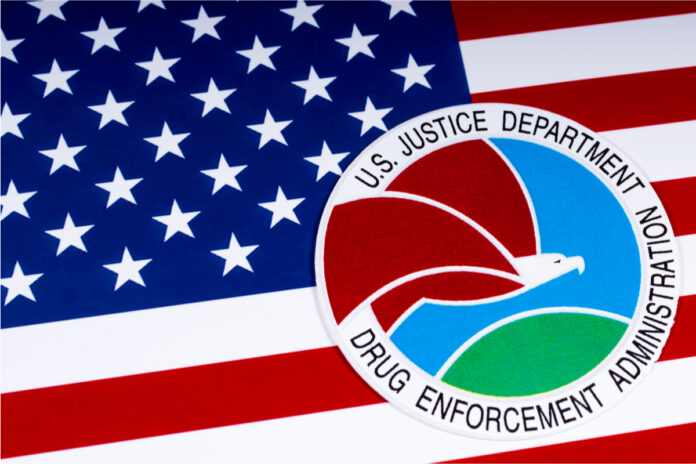WASHINGTON, D.C. – The U.S. Drug Enforcement Administration (DEA) issued an interim final rule (IFR) regarding provisions implemented by the 2018 Farm Act and, more specifically, changes with hemp provisions.
The new IFR enforces the policy that hemp derivatives and hemp oil containing more than 0.3 percent THC are classified as “marihuana,” and fall under federal jurisdiction as an illegal substance, included on the Controlled Substances Act (CSA).
Hemp oil and extracts are a primary source of cannabinoids, especially the popular supplemental cannabinoid cannabidiol (CBD). Consumer products that contain hemp derivatives must have less than 0.3 percent level of psychoactive cannabinoid tetrahydrocannabinol (THC).
“The definition of hemp does not automatically exempt any product derived from a hemp plant, regardless of the D9-THC content of the derivative,” the DEA said. “In order to meet the definition of ‘hemp,’ and thus qualify for the exemption from schedule I, the derivative must not exceed the 0.3 percent D9-THC limit. The definition of ‘marihuana’ continues to state that ‘all parts of the plant Cannabis sativa L.,’ and ‘every compound, manufacture, salt, derivative, mixture, or preparation of such plant,’ are schedule I controlled substances unless they meet the definition of ‘hemp’ (by falling below the 0.3 percent D9-THC limit on a dry weight basis) or are from exempt parts of the plant (such as mature stalks or non-germinating seeds)… As a result, a cannabis derivative, extract, or product that exceeds the 0.3 percent D9-THC limit is a schedule I controlled substance, even if the plant from which it was derived contained 0.3 percent or less D9-THC on a dry weight basis.”
The DEA said that the rule essentially conforms to provisions already contained in the 2018 Farm Act.
Hemp product producers and CBD advocates, however, expressed concern over the IFR. Manufacturers have said that while consumer products are formulated to contain less than 0.3 percent THC, raw product materials often contain more than the federally legal limit of THC during initial production phases.
Legal advocates also pointed out ambiguities in current legislation might have been overlooked or potentially leveraged by the DEA, to result in a rule that is open to interpretation.
“If you’re in the hemp derivative business, trust the DEA at your own peril. While it is true that the 2018 Farm Bill did legalize hemp, hemp derivatives, hemp extracts, and cannabinoids in hemp, it did not explicitly cover hemp processing,” business attorney and cannabis advocate Daniel Shortt wrote on Harris Bricken‘s Canna Law Blog.
“Here is the issue: the 2018 Farm Bill does account for hemp derivatives, extracts, and cannabinoids. It follows that the legislative intent was not to make processing hemp into extracts, derivatives, and cannabinoids a violation of the CSA. The DEA has either unintentionally or deliberately failed to account for this nuance and it could have a major chilling effect on the Hemp CBD industry or the fast-growing delta-8 THC market.”
“I’ll let you decide whether the DEA is ignorant or nefarious, but I believe that this is an intentional move by the DEA to maintain its authority over cannabis. To be fair I also think the DEA should be disbanded so maybe I am biased,” Shortt added.
The DEA did not accept public comment on the new rule, prior to implementing it. However, the Agency is accepting public comments on the IFR for sixty days, dating from August 21, when the rule was implemented. The IFR remains in effect until any further action is taken by the DEA.
Industry stakeholders and interested parties may submit public comment here.












